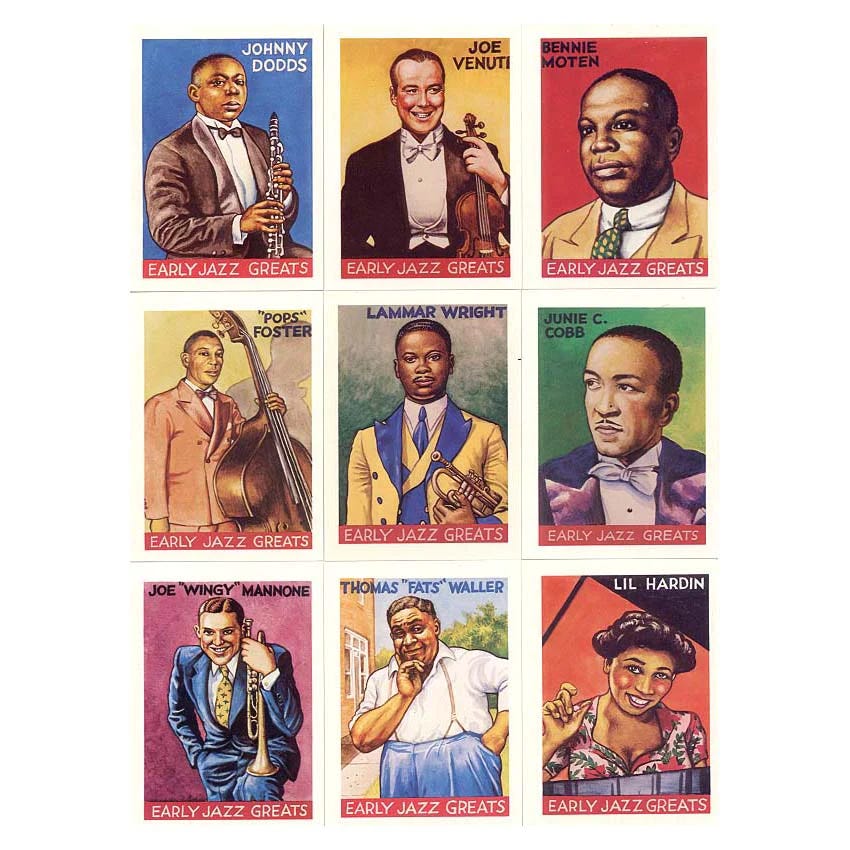The Big Lookback: Steely Dan, 1995
"Not Alone With Steely Dan," The Village Voice, November 15, 1995
Yet more Grateful Dead of bad vibes. This week’s Big Lookback is the full text of Carola’s Voice review of a 1995 Steely Dan show at Roseland, which also appeared in somewhat condensed form along with an older Steely Dan piece of mine in Going Into the City.
Filing into Roseland to hear Steely Dan three Saturdays ago, I think of Lester Bangs’s Elvis obit: “So I won’t bother saying good-bye to his corpse,” he concluded. “I will say good-bye to you.” The last time I saw this band in concert was just months before they launched almost two decades of not touring. But they didn’t go away. They spent their seclusion in my living room. They spent it in my car stereo, on my chiropractor’s sound system, in department store boutiques. When I closed my eyes for plane takeoff and opened my mouth for the high speed drill, they were there, smelling like mouthwash and Herculon, sounding like art and cheese. But this is the first time I’ll share Steely Dan with a live audience in 21 years. So I don’t bother saying hello to Steely Dan. I say hello to you.
It was 1974 when Steely Dan, then a two-year-old “bad-vibes” band that combined enigma and hook in a string of hits, decided to quit the road. Within a year, they’d stripped down to Walter Becker and Donald Fagen, then released four more albums with session musicians before divorcing altogether in 1980. The next 15 years saw three solo albums, including Fagen’s brilliant The Nightfly, but was basically a time of block. Then, in 1993, a new Steely Dan—Fagen and Becker, now in their forties, backed by a big band—started to tour again. And when they did, they sold out over night.
This is the Steely Dan story: Technopathic misanthropes, easy to misunderstand, the music was somewhere between “too cheesy” and “too bizarre,” as Fagen lamented upon the release of Pretzel Logic. “We’ve more or less abandoned hope of being one of the big, important rock ‘n roll groups.” This explains why they have five platinum albums. This explains why they are so hard to explain that the conventional critical wisdom, always stressing how hard they are to explain, always makes the same easily understood points. “Hippie muzak,” “Boprock”—the strange-bedfellows argument. Under this murkily elegant band lurk even murkier secrets, such as glee club harmonies and Les Baxter. Under the impenetrable sadness, Danish modern. Under Horace Silver, Burt Bacharach. Under Wayne Shorter-era Miles Davis, Sketches of Spain. Hipsters in secret love nest with rink-a-dink. Some secret—the word “cheesy” gets more play in the Dan press kit than in The Betty Crocker Fondue Cookbook.
I’ve gone back and forth between such paradoxes so many times I am convinced they are epiphany-free. I hardly even wonder why I’m always so glad to hear the sound of Steely Dan, whether in proven lifesavers like “Brooklyn (Owes the Charmer Under Me)” or diffuse material I couldn’t name from Fagen’s less wonderful Kamakiriad. Becker and Fagen shuffle musical and verbal cliches with merciless irresolution until the suspense is killing me: it’s generic, no it’s lovely, no it’s Steely Dan! This doesn’t even puzzle me any more. What does is why I can’t put my finger on whatever it is in the music that links me to its millions of other fans, and what that says about them—and me.
From my press seats on the side dais, I get a view of the thousand-plus who cared enough to buy their own tickets. Median age 29 or 30—young ones probably came in on late AOR in the early ‘80s. Lots of craniums and steel-rimmed glasses. Clean but not clean-cut. Not exactly nondescript. Just not giving anything away.
Questions flit across my mind like shy conversation on a first date. I like waiting rooms, how about you? I actually like “The Shadow of Your Smile,” how about you? Astor Piazzolla, how about you? Yet the truth is, anonymity has been such a necessary feature of my fandom for Steely Dan over the years that I relinquish it now with extreme disorientation. When Fagen comments, about midway through the show, “What a relief to play for actual people,” I’m touched but ambivalent. I’ve spent so much time alone with this voice that his actual person seems like an intruder. Sometimes I have to look away to hear the ache in the throat, the slight lisp that I know as well as my own living room speakers. When I do, I face the bobbing, transfixed sea of craniums—my secret sharers—and the invasion of my privacy is complete. But inside that invasion, like the sound of Steely Dan when you’re on hold, lies a puzzling comfort. So it turns out you live in a motel. That doesn’t mean you're not alone.
Forget the haircut and Becker has barely changed. Fagen is muscular and wiry, if grizzled. These guys were always old for their years, so the revelations of aging are minimized, and anyhow, take it from me, 50 is when it happens. Opening with Duke Ellington’s “East St. Louis Toodle-oo,” the band looks like R. Crumb’s jazz cards—cartoon versions of old time jazz musicians. This is a nice epiphany: already we belong to the ages. Otherwise, it’s basically an epiphany-free evening. Irony-free, too.
With the backing of 10—surprise surprise—crack musicians, including Weather Report’s Peter Erskine on drums, Jazz Passenger Bill Ware on vibes, Chris Potter on sax, the spectacular Drew Zingg on guitar, and bassist Tom Barney (“He made a mistake, once,” Becker teased; Barney knew the date), Becker and Fagen’s set went on for nearly two hours. It emphasized their AOR-conquering Aja mode and included material from both leaders’ solo albums (not, unhappily, The Nightfly), but did dip back, although the oldies were, that’s right, nostalgia-free as well—sharpened, slightly restructured, and regrooved. Zingg’s “Bodhisattva” solo added new jazzy phrasing, dribbles and halts, to the old insistent boogie. “Reelin’ In The Years” had some new sweet-and-sour tensions, and “Do It Again,” I’m not sure why, sounded less like pathological compulsion than reason to hope. Most of what they played is on Alive in America (Giant), the new, first (naturally), excellent (naturally) live album they recorded on their 1993-94 tour. It sounded better truly live. And I’ll take the complete studio works they’ve remastered for the Citizen Steely Dan box (MCA) any time.
“We’re playing old stuff,” Fagen quipped, “because we don’t have any new stuff. We’re taking suggestions for song concepts.” Here are some of mine. Formally, try shorter with fewer sax fills—just exercise, of course. Thematically, the Apple of the ‘90s oozes Steely Dan potential. Main Street, Flushing. Sweatshops in Soho. Russian gangsters run a jazz club (Moscow or Brighton Beach, your choice). Rock star (male) marries corporate lawyer. The demise of Medicare. Or leave New York and try Bordertown. See you when we see you, boys. And where. — Carola Dibbell





